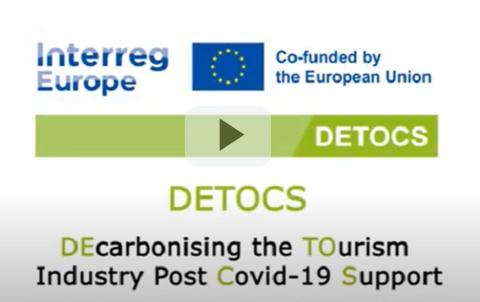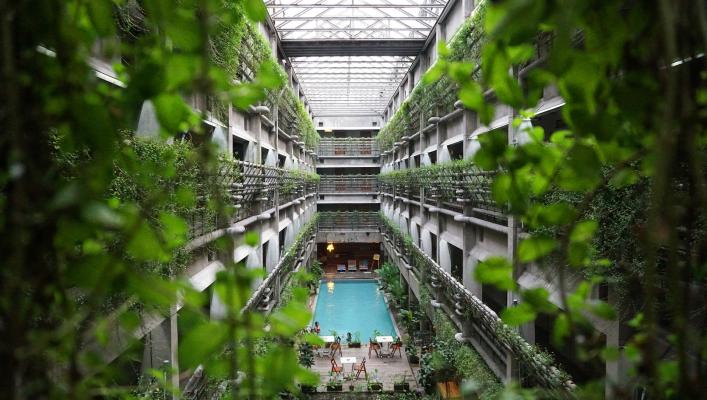Project summary
The European Union (EU) has committed to decarbonising its economy by 2050 to address climate change. At the same time, the ongoing energy crisis has sharply increased energy costs, threatening the financial viability of tourism infrastructure across many member states. To address these challenges, the EU is also prioritising energy security, self-sufficiency, and competitiveness. Additionally, the tourism sector has suffered significant decline due to the Covid-19 pandemic, with further strain from the current energy crisis.
In response to these challenges, the Interreg Europe DETOCS – DEcarbonising the TOurism Industry Post Covid-19 Support – project aims to support the recovery of the EU tourism infrastructure in a sustainable and low-carbon manner. In doing so, DETOCS aligns with EU long-term policies for the decarbonisation of the economy. During the project, best practices for sustainable tourism are identified and shared across partner regions, including Slovenia, Greece, Malta, Finland, Italy, Bulgaria, Hungary, and the Netherlands. Partners also work to enhance regional policies that support the decarbonisation of the tourism industry through capacity building and the adoption of successful practices from other regions.
DETOCS contributes to EU Cohesion Policy, and specifically to the “Policy Objective 2 (PO2): A greener, low-carbon Europe”. The project promotes the transition to clean and sustainable energy in tourism infrastructure, supporting the achievement of a climate-neutral Europe by 2050. The targeted policies will help reduce greenhouse gas emissions through investments in energy efficiency, energy-saving initiatives, and renewable energy solutions, in line with Directive (EU) 2018/2001.

Check out our DETOCS project video!
Watch our project video for a glimpse into who we are and what we are aiming to acheive.
What will this project change
The project goals are set out in five clear areas, as seen below:
- Facilitate the decarbonisation of tourism infrastructure
- Increase energy efficiency of the tourism infrastructure
- Increase energy self-sufficiency of the tourism sector
- Promote novel types of tourism, such as virtual tourism, which have low energy consumption and release fewer carbon emissions
- Assist the tourism sector in adapting to the current energy situation; decrease the share of energy cost in their total operational cost as the status quo threaten their profitability and economic viability
